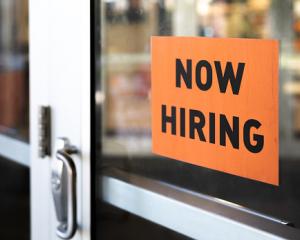
Otago bucked the trend, with consent numbers for January up from 102 a year ago to 130, largely due to Central Otago consents more than doubling for the month from 12 to 30, while the Queenstown Lakes region eased from 65 a year ago to 59.
Including alterations, the national value of building work consented in January was $1.1billion, of which $748million was residential work and $338million non-residential work.
While consents for houses declined 4.9% in January, townhouse consents rose 26%.
Building consents for new homes appeared to have eased or decreased across most of the country, Statistics New Zealand business indicators senior manager Neil Kelly said yesterday.
Nationally, the number of new homes consented had decreased 15% in the five months to January, after reaching a 12-year high in August 2016.
``Most regions appear to have contributed to the recent decrease in residential consents, although Canterbury is the most significant contributor, followed by Auckland,'' Mr Kelly said.
While the seasonally adjusted number of new homes consented in January rose 0.8%, analysts were concerned that followed declines of 7.9% in December and 8.9% last November.
For the year ended January, actual numbers of new homes consented grew to 30,123, which was up 11% from the year ended January 2016.
ASB senior economist Jane Turner given the continued shortage in housing supply, particularly in Auckland and Wellington, the trend of declining consents was ``disappointing''.
``Growth in consents has stalled, with the number of residential consents now 1.7% below year-ago levels,'' Mrs Turner said.
SNZ's Mr Kelly said building consents were ``quite volatile'' at a regional level.
``Canterbury is showing a sustained decrease from its post-quake peak, whereas Auckland is still close to a 12-year high and is now consenting over 10,000 homes a year,'' he said.
However, Westpac senior economist Satish Ranchhod said Auckland consent issuance was ``continuing to languish'' and while 10,000 new dwellings had been consented over the past year, there remained a more than 1000-house shortfall.
``To keep up with population growth and address the existing shortfall, Auckland needs to build upwards of 11,000 dwellings a year. And even then, it will require around a decade of strong building activity,'' Mr Ranchhod said.
He said consent numbers in Auckland had dropped back 0.7% in January, which was the sixth decline in the past seven months.
ASB's Mrs Turner said growth in consents had stalled, with the number of residential consents now 1.7% below levels a year ago.
``SNZ noted that the trend in consents peaked in August 2016, and has since fallen 15%.
``In light of continued supply shortages, particularly in Auckland and Wellington, this trend of falling consents is disappointing,'' she said.












